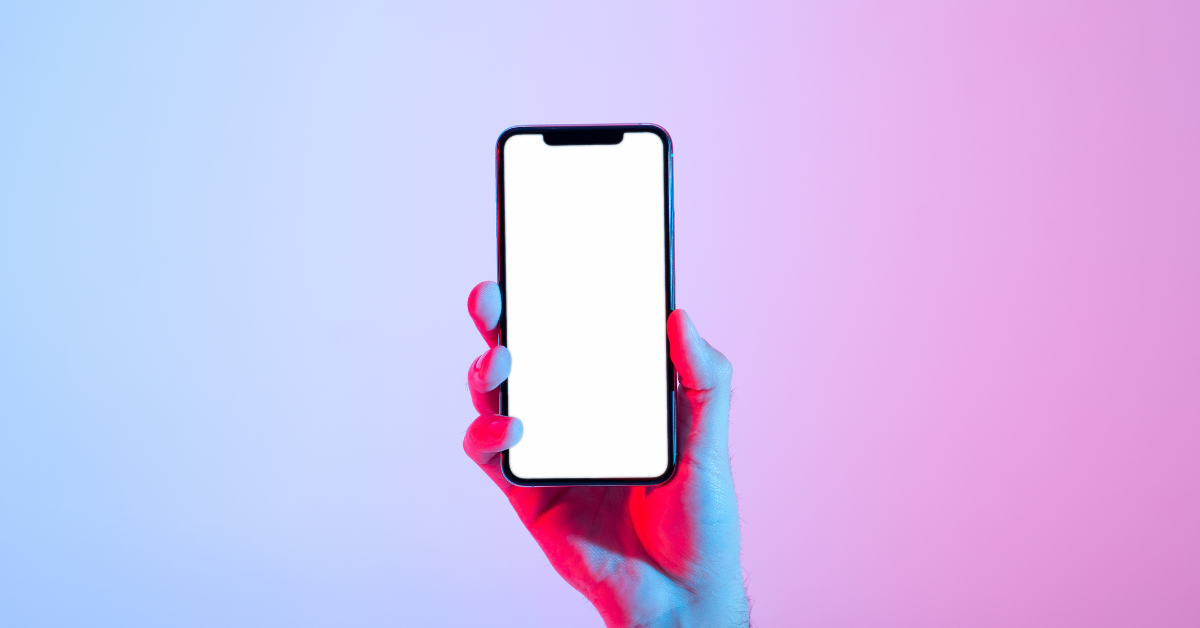What is Mobile App Marketing? How It Drives Growth for a Brand

- Mobile App Marketing
- Importance of Mobile App Marketing
- How Does Mobile App Marketing Work?
- What are the Steps Involved in Mobile App Marketing?
- 4 Mobile App Marketing Tools
- Mobile App Marketing Examples
- The Future of Mobile App Marketing
- Who Does Mobile App Marketing Benefit?
- Enhance Your Marketing Career with Emeritus
Think of anything you need, be it tracking your sugar levels to buying your groceries, there is probably an app for it.! It is the age of apps and marketing professionals cannot overlook this. Hence, mobile app marketing is crucial for businesses because it helps to increase brand awareness, drive user engagement, and generate revenue. That is why organizations look for professionals who can help them reach their target audience effectively and efficiently by leveraging the widespread use of mobile devices.
Marketing professionals must also be well-versed in effective mobile marketing strategies that lead to increased downloads, user retention, and customer loyalty, contributing to the success and growth of the business.
According to Statista, mobile advertising expenditures are expected to surpass $339 billion in 2023. It illustrates the rising demand for skilled professionals with relevant experience in mobile apps and marketing strategies.
The following blog will discuss marketing on mobile apps, the steps associated with it, and its benefits.
Mobile App Marketing
This type of marketing refers to the process of promoting a mobile application to reach a larger audience and increase downloads. The process happens through various channels, such as social media, online advertisements, app store optimization, influencer marketing, email marketing, etc. So, mobile app marketing aims to increase visibility and attract users to download and engage with different applications.
It is a crucial aspect of app development and involves promoting a mobile application to reach a wider audience and drive downloads. The ultimate goal of this exercise is to increase visibility, drive user acquisition and engagement, and increase revenue generation.
Importance of Mobile App Marketing
According to Statista, mobile devices generated around 59.16% of global website traffic in the fourth quarter of 2022. The current rate of mobile usage is one of the primary factors that has supported the rising demand for mobile app marketing.
Here is a breakdown of points that will help further analyze the importance of this kind of marketing in the digital era.
UserAcquisition
Marketing on apps helps to prompt more downloads and increase the user base for a particular application, which is critical for its success.
Visibility
Marketing strategies help increase the visibility and discoverability of mobile apps, making it easier for potential users to find and download them instantly.
User Engagement
Mobile app marketing promotes different applications and their respective features through various marketing channels. The process helps to increase user engagement and guides them into coming back to the same applications.
Revenue Generation
A well-executed marketing campaign can drive downloads and increase user engagement. It leads to increased revenue generation for businesses through in-app purchases, subscriptions, and other monetization methods.
Competition
Mobile app marketing helps differentiate an application from its competitors and stand out in the crowded marketplace.
Brand Awareness
It helps to increase brand awareness and reinforce the brand’s presence in the market.
Customer Insights
Marketing of this kind provides valuable data and insights into customer behavior and preferences, which can be used to inform future marketing strategies and improve the user experience.
How Does Mobile App Marketing Work?
Marketing on apps involves a comprehensive approach to promoting a mobile app so that it reaches a broader audience and drives downloads. The process typically involves the following steps.
Step 1: Understanding the Target Audience
It is important to understand the target audience, their needs, and their behavior before starting a campaign. The information can be gathered through market research, customer surveys, and analysis of app store data.
Step 2: Defining the Marketing Objectives
The marketing objectives should align with the overall goals of the app and the target audience. Examples of marketing objectives include increasing app downloads, user engagement, and revenue generation.
Step 3: Choosing Marketing Channels
The next step is to choose the marketing channels that are best suited for reaching the target audience. The process could include app store optimization, social media marketing, influencer marketing, online advertising, and email marketing.
Step 4: Executing the Marketing Campaign
The marketing campaign can be executed once the marketing channels get chosen. The process involves creating and distributing marketing materials, such as advertisements, influencer collaborations, and promotional emails.
Step 5: Monitoring and Optimizing
The marketing campaign should be monitored regularly to measure its effectiveness. You can then optimize it based on the results. It involves analyzing data such as app downloads, user engagement, and revenue, and making the required adjustments.
What are the Steps Involved in Mobile App Marketing?
Mobile applications have shown the power of computing and the outcome of using it for business success multiple times. The mobile app marketing strategy is therefore very significant in today’s highly competitive digital world.
Here is a breakdown of the steps that have proven to work in the industry.
1. Prelaunch Marketing
The app is still in the development stage during this period. So, a marketer’s job is to create awareness of the application by instigating a ‘buzz’ about its features across different platforms.
2. Postlaunch Marketing
This is the phase where the application is completely developed and ready to be rolled out for customer use. Marketers need to use different methodologies to encourage prospective customers to download the new application.
3. Customer Engagement and Retention
This step involves rigorous mobile app marketing campaigns to ensure that customers only uninstall the app after using it once. The campaigns should prompt them to return to the application and engage with it.
4. Application Monetization
Marketers must ensure that the applications involve paid subscriptions for users and other exclusive services. They can also drive further finances easily by introducing in-app purchases to provide more features and deliver a rich user experience.
ALSO READ: Top 5 Content Marketing Tools for Boosting Your Online Presence
4 Mobile App Marketing Tools
Mobile app marketing tools are an excellent way to streamline campaigns and promote applications on a larger scale.
Here is a list of the four most popular marketing tools that help marketers overcome any hassles of online marketing they may face.
Buffer
The tool helps individuals and organizations schedule their respective social media posts. It streamlines the processes by enabling single dashboards in the post-publication phase across multiple platforms.
Some of its main features include:
- Scheduling social media posts across platforms
- Providing metrics for each social media post
- Separate tools for businesses to gather actionable insights from their posts
Branch.io
The tool helps users create deep links for their respective apps that can be used to direct market-specific app content to attract the audience. It helps create app URLs that will direct the users to specific application screens.
Some of its main features include:
- Identifying channels that can generate more users for apps
- Creating powerful deep links to direct users to the app content
- Providing the ultimate user experience through customized app onboarding across channels
Canva
The tool helps professionals create designs instantly for different app marketing campaigns that run across various channels, such as email, social media, app stores, etc.
Some of its main features include:
- Providing premade templates and high-quality creatives for marketing campaigns
- Providing quality images and designs to create efficient creatives
- Inviting team members to collaborate on various creatives
TheTool.io
The app store optimization tool enables mobile applications to enhance their organic visibility on different platforms like the Google play store and the Apple app store.
Some of its main features include:
- Identifying relevant keywords to rank quickly
- Using sentiment analysis tools to get real user feedback
- Tracking all app store rankings across different locations
Mobile App Marketing Examples
Domino’s
Domino’s once decided to ‘go big’ by gaining attention through a unique app promotion idea. The brand achieved success through its innovative campaign titled ‘Piece of the Pie’ reward program.
The pizza outlet allowed customers to sign up for the special reward program and earn 10 points for every pizza they scanned on the app. So, the participant would get a free pizza from Domino’s upon collecting 60 points.
So, Domino’s used an AI-driven mobile app for pizza scanning that contributed to efficient user-generated content and increased brand awareness.
IKEA
IKEA Place allows smartphone users to browse through catalogs and check whether a piece of furniture would fit their surroundings. Its mobile app uses Augmented Reality (AR) to showcase a life-scale image of a particular object against the background captured by the cellphone camera.
The strategy allowed IKEA to gain active users and boost app engagement because the users spent considerable time browsing through the catalog and searching for their favorite pieces of furniture.
The Future of Mobile App Marketing
The future of mobile app marketing may be influenced by advancements in technology and changing consumer behavior. Moreover, multiple key trends are expected to shape the future of mobile app marketing.
1. Artificial Intelligence and Machine Learning
AI and ML will play a significant role in automating and personalizing mobile app marketing, making it easier for marketers to reach and engage with their target audience.
2. Increased Use of Chatbots
Chatbots have become increasingly popular for customer service and engagement in mobile app marketing, and they are expected to influence campaigns heavily in the future.
3. The Growth of Mobile Wallets
The increasing use of mobile wallets is expected to drive the growth of in-app purchases and mobile commerce, leading to more opportunities for mobile app marketers.
4. The Importance of Privacy and Security
As privacy and security concerns continue to grow, app marketers need to focus on building trust with their users. They can be efficient in this process by remaining transparent about data collection and usage policies.
Who Does Mobile App Marketing Benefit?
- App Developers and Owners: They can promote their apps through various marketing channels to increase app visibility, downloads, and user engagement.
- Businesses: They can use mobile app marketing to reach their target audience and drive conversions.
- End-Users: It can benefit end-users by making them aware of new and useful apps that can enhance their lives or solve particular problems.
- Advertisers: It allows advertisers to reach their target audience through in-app advertising, which can be more effective than traditional digital advertising.
Enhance Your Marketing Career with Emeritus
Mobile app marketing is an essential aspect of app development and plays a crucial role in driving downloads, increasing user engagement, and generating revenue. Effective marketing strategies require careful planning, execution, and ongoing monitoring and optimization to achieve desired results.
If you want to advance your career in a similar field, enroll in Emeritus’ online sales and marketing courses. You can explore dynamic learning opportunities, such as digital marketing, omnichannel marketing, communication strategies, etc., improve your acumen as a marketing professional.
Write to us at content@emeritus.org


















